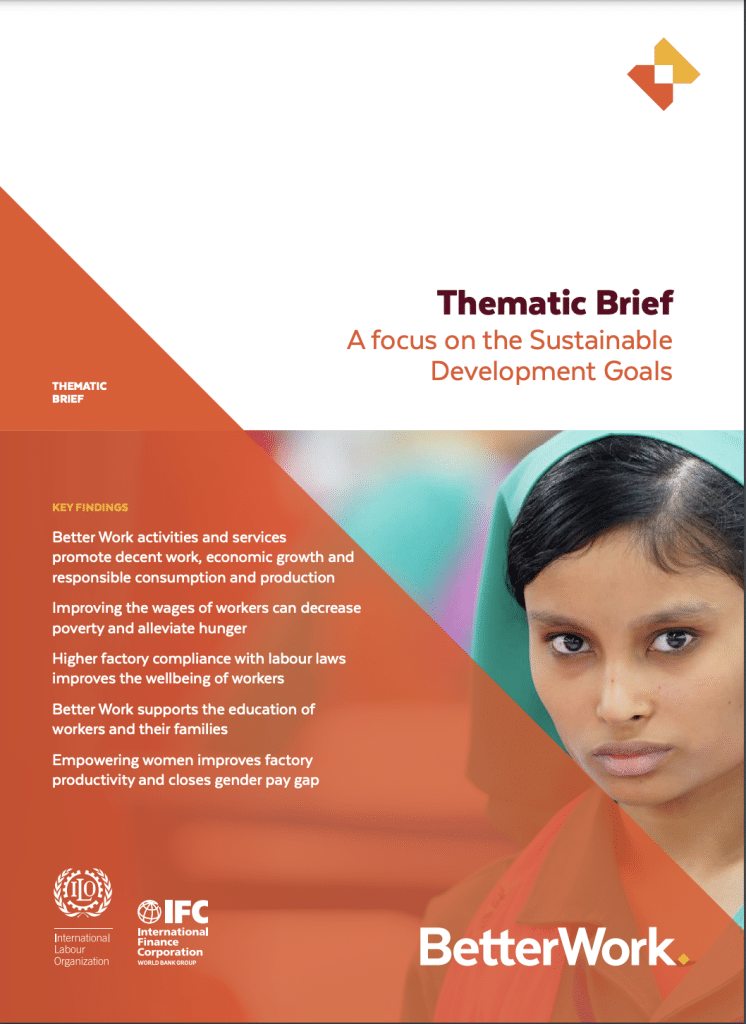This brief draws on research that demonstrates that the Better Work programme contributes to advancing the Sustainable Development Goals (SDGs). On the whole, the programme addresses SDG 8: Decent Work and Economic Growth and SDG 12: Responsible Consumption and Production. The impact assessment analysis also provides evidence of positive impact on five additional goals.
Better Work commissioned Tufts University to carry out an independent impact assessment of the programme since inception. The university’s interdisciplinary research team has gathered and analysed survey responses from nearly 15,000 garment workers and 2,000 factory managers in Haiti, Indonesia, Jordan, Nicaragua and Vietnam.
The surveys were conducted after varying periods of their factories’ exposure to Better Work services in order to isolate the change due to the programme. Tufts’ in-depth analysis provides concrete evidence of Better Work’s effectiveness in changing workers’ lives and boosting factory competitiveness. This brief draws on that research to present how the Better Work programme contributes to advancing the Sustainable Development Goals (SDGs).1 On the whole, the programme addresses SDG 8: Decent Work and Economic Growth and SDG 12: Responsible Consumption and Production. The impact assessment analysis provides evidence of positive impact on five additional goals: SDG 1: No Poverty, SDG 2: Zero Hunger, SDG 3: Good Health and Wellbeing, SDG 4: Quality Education and SDG 5: Gender Equality.
Key findings
- Better Work activities and services promote decent work, economic growth and responsible consumption and production
- Improving the wages of workers can decrease poverty and alleviate hunger
- Higher factory compliance with labour laws improves the wellbeing of workers
- Better Work supports the education of workers and their families
- Empowering women improves factory productivity and closes gender pay gap
